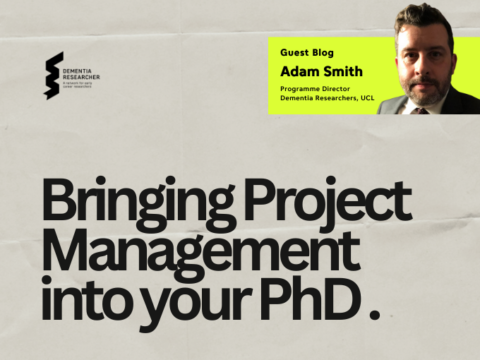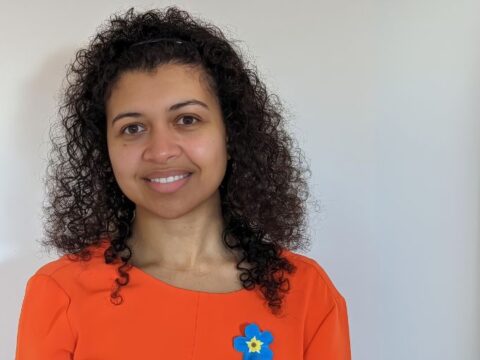2024 MSA Research Symposium: Early Stages of MSA: Advancing Diagnostics, Biomarkers, & Interventions. From diagnostics and biomarkers to drug trials and interventions, the MSA Research Symposium promises a day of discussions and updates, shaping the trajectory of MSA research.
This is where clinical insight meets scientific rigor and industry collaboration. Seize the opportunity to connect with pioneers like Sir John Hardy and Prof Claudio Soto, delve into alpha-synuclein genetics, navigate the intricate pathways of MSA with experts such as Prof Henry Houlden, Prof Sonia Gandhi, Prof Stephen Gentleman and learn from movement disorders experts like Prof Kailash Bhatia, Prof Michele Hu, Dr Valeria Iodice, Dr Nicola Pavese and Dr Wendi Phillips.
00:00:00 – Start
00:00:03 – Opening remarks: Prof. Sonia Gandhi, Clinical and Movement Neurosciences, UCL Queen Square Institute of Neurology.
00:03:21 – Session 1: New Insights into Alpha-synuclein Genetics & Biomarkers, chair: Prof. Sonia Gandhi, Clinical and Movement Neurosciences, UCL Queen Square Institute of Neurology.
00:04:36 – Sir John Hardy, UCL Queen Square Institute of Neurology: Genetic Analysis of Synucleinopathies.
00:26:03 – Prof. Claudio Soto, University of Texas Medical School, USA: Seed Amplification of Aplha-Synuclein Aggregates in MSA: Detection, Biochemical, Biological & Structural Studies.
00:50:35 – Q&A Session One.
01:02:46 – Session 2: Alpha-Synuclein Structure, Pathways, and Genetic Rrisks in MSA, chair: Prof Henry Houlden, UCL Queen Square Institute of Neurology.
01:02:58 – Prof. Stephen Gentleman, Imperial College London: Is Multiple System Atrophy a Distinct Strain of Alpha-Synucleinopathy?
01:18:54 – Prof. Sonia Gandhi, Clinical and Movement Neurosciences, UCL Queen Square Institute of Neurology: The Role of Oligodendrocytes in Synucleinopathies
01:32:40 – Maria Xilouri, Biomedical Research Foundation of the Academy of Athens, Greece: Targeting Autophagy to Counteract Alpha-Synuclein-Related Pathology in MSA.
01:48:47 – Dr Viorica Chelban, UCL Queen Square Institute of Neurology: Genetics in the MSA Clinic
02:10:34 – Q&A Session 2.
02:17:05 – Session 3: MSA Research: From Patient to Bench and Back to The Patient, chair: Dr Christopher Kobylecki, Manchester Centre for Clinical Neurosciences, Salford.
02:17:32 – Amanda Helsegrave, Biomarkers Lab, UCL Queen Square Institute of Neurology: Setting-Up a Biobank for Research into Neurodegenerative Diseases.
02:31:38 – Prof. Nicola Pavese & Dr Jacopo Pasquini, Clinical Ageing Research Unit Newcastle University: Neuroimaging Tools for MSA Diagnosis and Progression.
02:49:16 – Prof. Anja Lowit, Strathclyde University Glasgow: Treating Communication Difficulties in People Living with MSA.
03:01:23 – Q&A Session 3.
03:06:35 – Session 4: Diagnosing MSA in Early Disease Stages, chair: Prof Michele Hu, Nuffield Department of Clinical Neurosciences, University of Oxford, UK.
03:06:59 – Dr Wendy Phillips, Addenbrooke’s Hospital, Cambridge, UK: Difficulties in Diagnosis of Prodromal MSA.
03:20:23 – Dr Yee Yen Goh, UCL Queen Square Institute of Neurology, Association of British Neurologists & MSA Trust Clinical Research Fellow: Clinical Markers of Prognosis in MSA.
03:37:38 – Prof. Kailash Bhatia, UCL Queen Square Institute of Neurology: MSA Mimics in Early Stages of Disease: Clinical Challenges and Pathways to Diagnosis.
03:52:22 – Dr Valeria Iodice, UCL Queen Square Institute of Neurology: The Queen Square Autonomic Prodromal (QSA-PRODROMAL) Study.
04:09:53 – Q&A Session 4.
04:21:57 – Session 5: Ongoing MSA Drug Trials, Updates, chair: Prof Nick Wood, UCL Queen Square Institute of Neurology.
04:22:54 – Dr Valeria Iodice, UCL Queen Square Institute of Neurology: Longitudinal Analysis of Ampreloxetine for The Treatment of Sysmtomatic Neurogenic Ortostatic Hypotension in Subset of Patients with MSA.
04:31:54 – Closing Remarks: Prof. Nick Wood & Prof. Kailash Bhatia.







